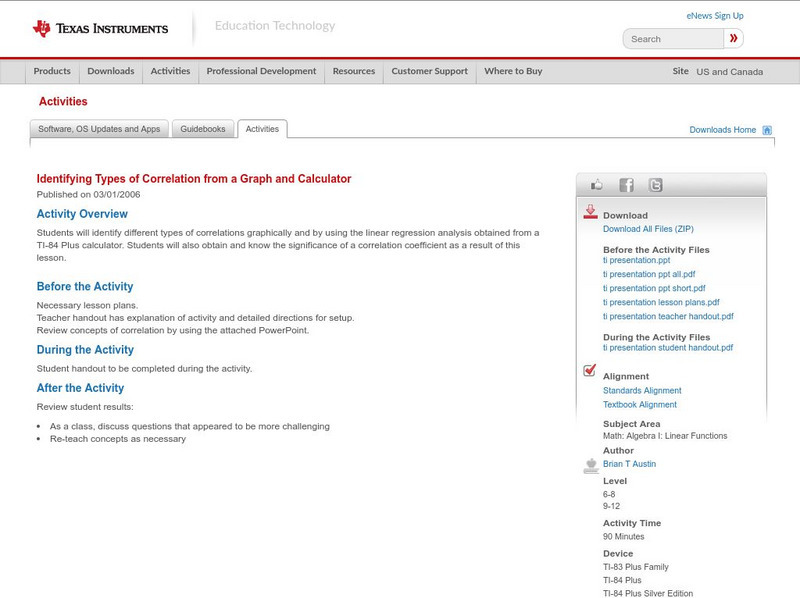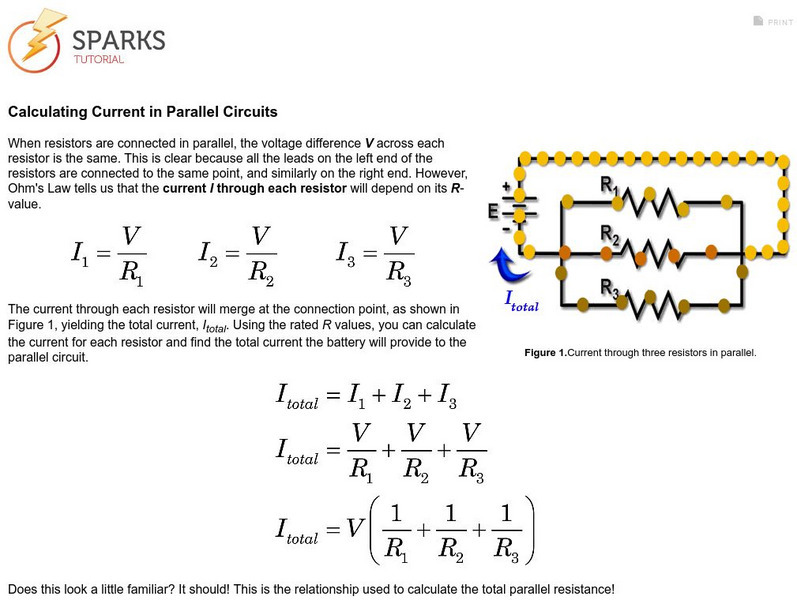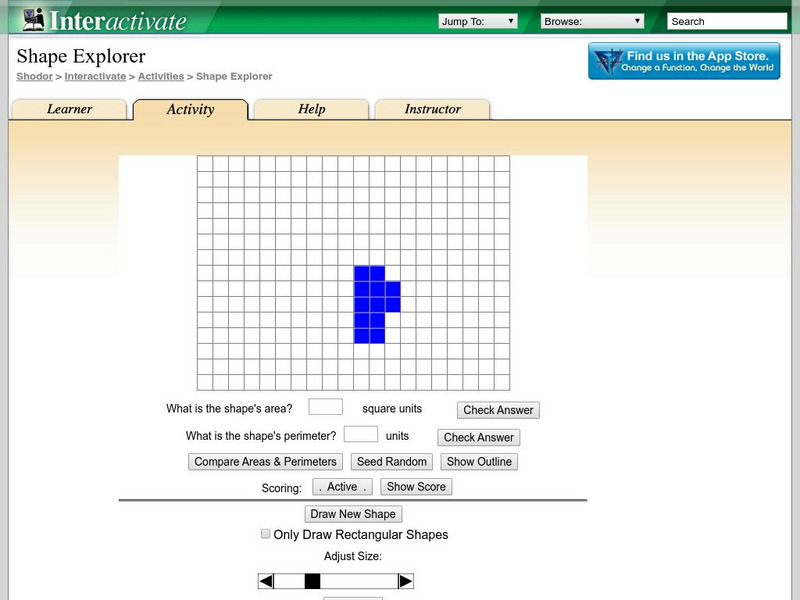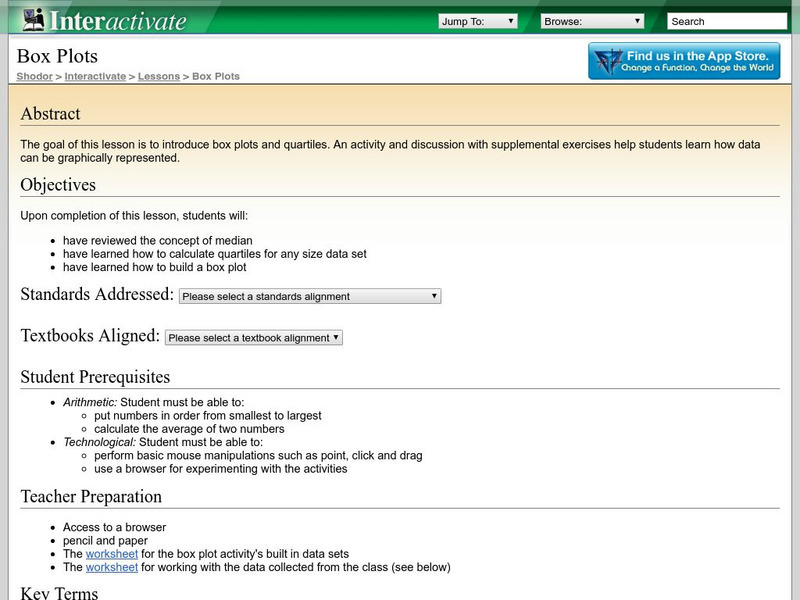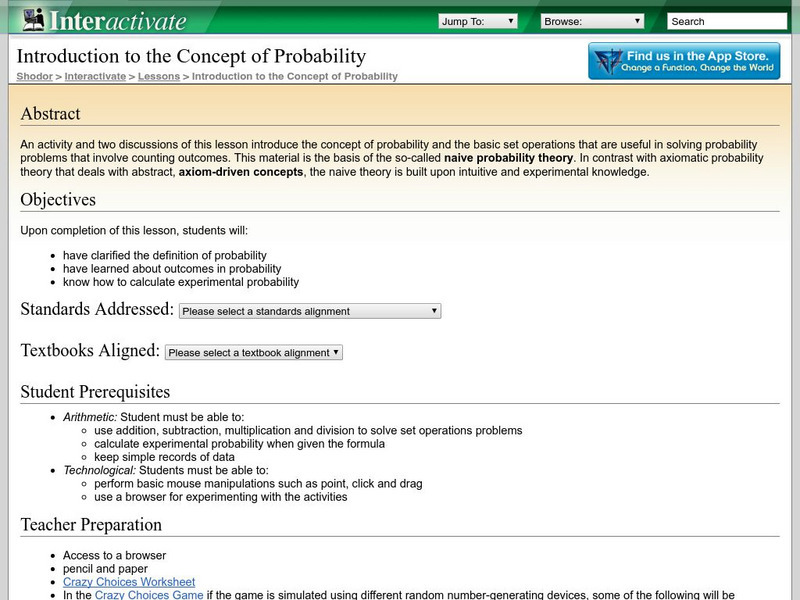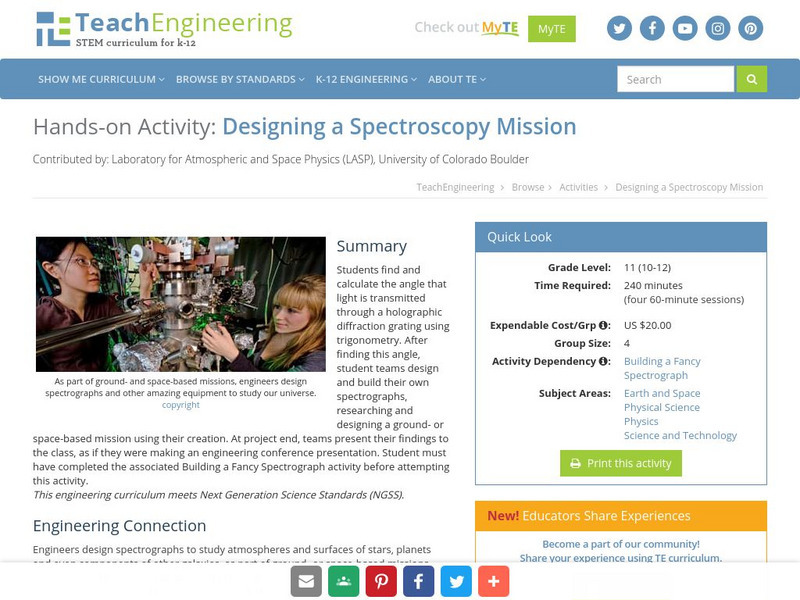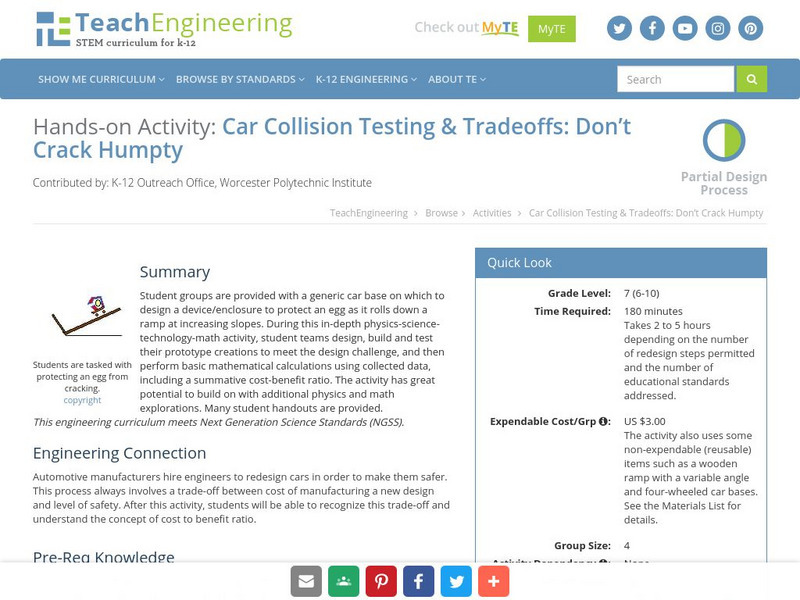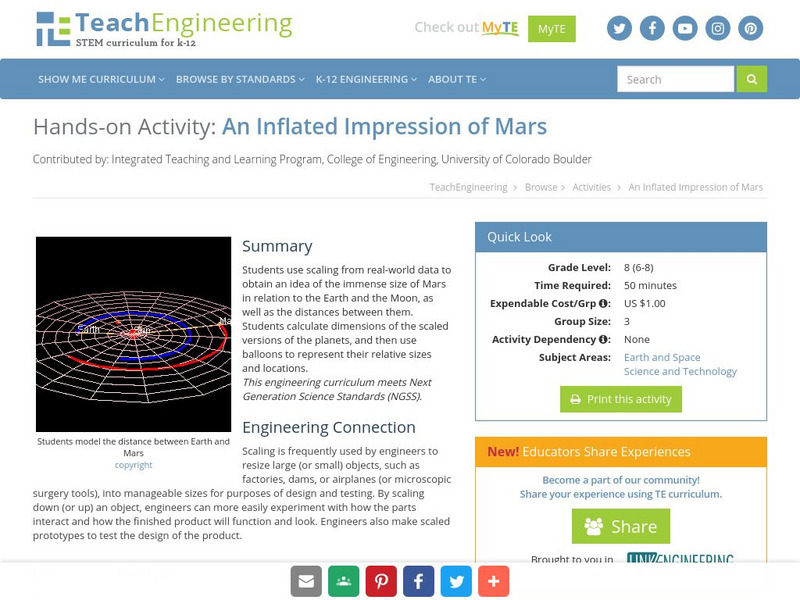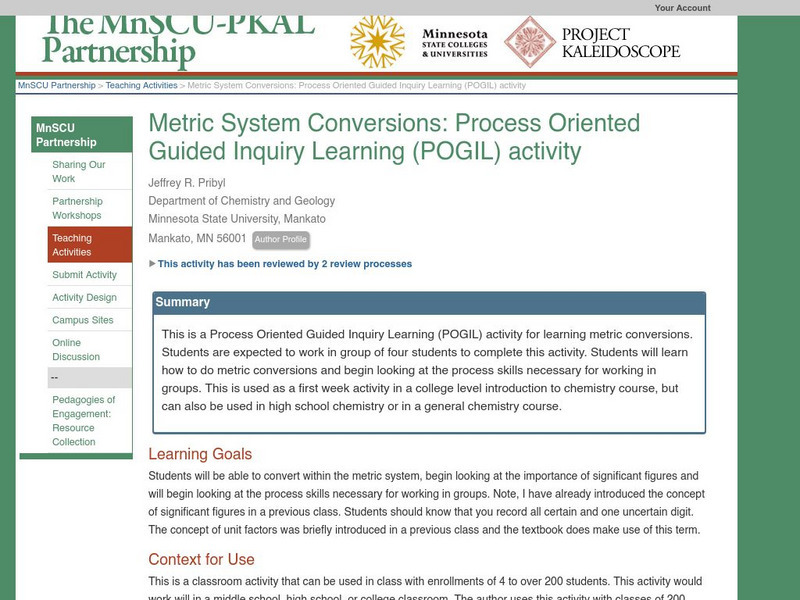Consumer Financial Protection Bureau
Consumer Financial Protection Bureau: Calculating Rate of Return
Students calculate the rate of return to measure an investment's performance and answer questions about investing.
Texas Instruments
Texas Instruments: Identifying Types of Correlation From a Graph and Calculator
Students will identify different types of correlations graphically and by using the linear regression analysis obtained from a TI-84 Plus calculator. Students will also obtain and know the significance of a correlation coefficient as a...
Concord Consortium
Concord Consortium: Calculating Current in Parallel Circuits
Use Ohm's Law to calculate the current in parallel circuits.
PBS
Pbs Teachers: Building Boxes [Pdf]
By determining the dimensions necessary for building a box with the greatest volume, young scholars will explore the world of polynomial and rational expressions. Graphing calculators can be used for this activity.
Consumer Financial Protection Bureau
Consumer Financial Protection Bureau: Calculating the Numbers in Your Paycheck
Learners review a pay stub from a sample paycheck to understand the real-world effect of taxes and deductions on the amount of money they take home.
Concord Consortium
Concord Consortium: Calculating Reactance
Find out how the current in a circuit can be impeded by three types of circuit components.
Concord Consortium
Concord Consortium: Calculating Voltage in Series Circuits
See how Ohm's Law can tell us that the voltage across resistors will depend on that current value I and each R-value.
Smithsonian Institution
Smithsonian Learning Lab: Prehistoric Climate Change and Why It Matters Today
Introduce students to environmental issues by studying a time of rapid global warming that occurred 50 million years ago. Lessons, video segments and interactive activities will engage students as they learn about average annual...
Shodor Education Foundation
Shodor Interactivate: Shape Explorer
Learners practice calculating the perimeter and area of a given figure. The interactive activity and teacher resources are included.
Texas Instruments
Texas Instruments: Confidence Intervals
Learn to use the TI-89 to construct confidence intervals either using data or using sample statistics. The activity has step-by-step calculator instructions along with calculator screen prints.
OpenStax
Open Stax: Physics: Molecular Transport Phenomena
Learn about diffusion, osmosis, dialysis, and active transport in this college textbook. Section also includes how to calculate the rate of diffusion. Section includes problems and questions for the students to answer to ensure...
TeachEngineering
Teach Engineering: Getting It Right!
In this lesson, students will investigate error. As shown in earlier activities from navigation lessons 1 through 3, without an understanding of how errors can affect your position, you cannot navigate well. Introducing accuracy and...
Shodor Education Foundation
Shodor Interactivate: Lesson: Probability and Geometry
The Shodor Education Foundation provides this lesson plan to give students an opportunity to connect probabilty and geometry. Students learn how to calculate probability, use geometry to solve probabilty problems, and, as an added bonus,...
Shodor Education Foundation
Shodor Interactivate: Lesson: Box Plots
This lesson plan introduces quartiles and box plots. It contains an activity and discussion. Supplemental activities about how students can represent data graphically are also included.
Shodor Education Foundation
Shodor Interactivate: Lesson: Intro to the Concept of Probability
The Shodor Education Foundation provides this lesson plan to introduce students to the concepts of probability. Students learn about the definition of, outcomes in, and calculations of experimental probability. Students use an...
PBS
Pbs: Scientific American: Never Say Die: Eat Less Live Longer
This site from the PBS production "Never Say Die" provides a section on how to eat less and live longer. The first part of this site discusses food and nutrition. The second part is an activity in which you can make a calorimeter. The...
TeachEngineering
Teach Engineering: Load It Up!
Students take a hands-on look at the design of bridge piers (columns). First they brainstorm types of loads that might affect a Colorado bridge. Then they determine the maximum possible load for that scenario, and calculate the...
TeachEngineering
Teach Engineering: Designing a Spectroscopy Mission
Students find and calculate the angle that light is transmitted through a holographic diffraction grating using trigonometry. After finding this angle, student teams design and build their own spectrographs, researching and designing a...
TeachEngineering
Teach Engineering: Car Collision Testing & Tradeoffs: Don't Crack Humpty
Student groups are provided with a generic car base on which to design a device/enclosure to protect an egg as it rolls down a ramp at increasing slopes. During this activity, student teams design, build and test their prototype...
TeachEngineering
Teach Engineering: An Inflated Impression of Mars
The purpose of this activity is to use scaling in order to give students an idea of the size of Mars in relation to the Earth and the Moon as well as the distance between them. The students will have to calculate dimensions of the scaled...
TeachEngineering
Teach Engineering: Tools and Equipment, Part I
Through a series of activities, students discover that the concept of mechanical advantage describes reality fairly well. They act as engineers creating a design for a ramp at a construction site by measuring four different inclined...
Science Education Resource Center at Carleton College
Serc: Minnesota State Colleges and Universities: Metric System Conversions
Using inquiry-based learning, students work in groups to devise metric conversion factors after analyzing example calculations. By finding inaccuracies in the problems given, students zero in on the correct methods of doing conversions.
TeachEngineering
Teach Engineering: Shallow & Deep Foundations
Students investigate the critical nature of foundations as they learn differences between shallow and deep foundations, including the concepts of bearing pressure and settlement. Using models representing a shallow foundation and a deep...
TeachEngineering
Teach Engineering: Falling Water
Students drop water from different heights to demonstrate the conversion of water's potential energy to kinetic energy. They see how varying the height from which water is dropped affects the splash size. They follow good experiment...

